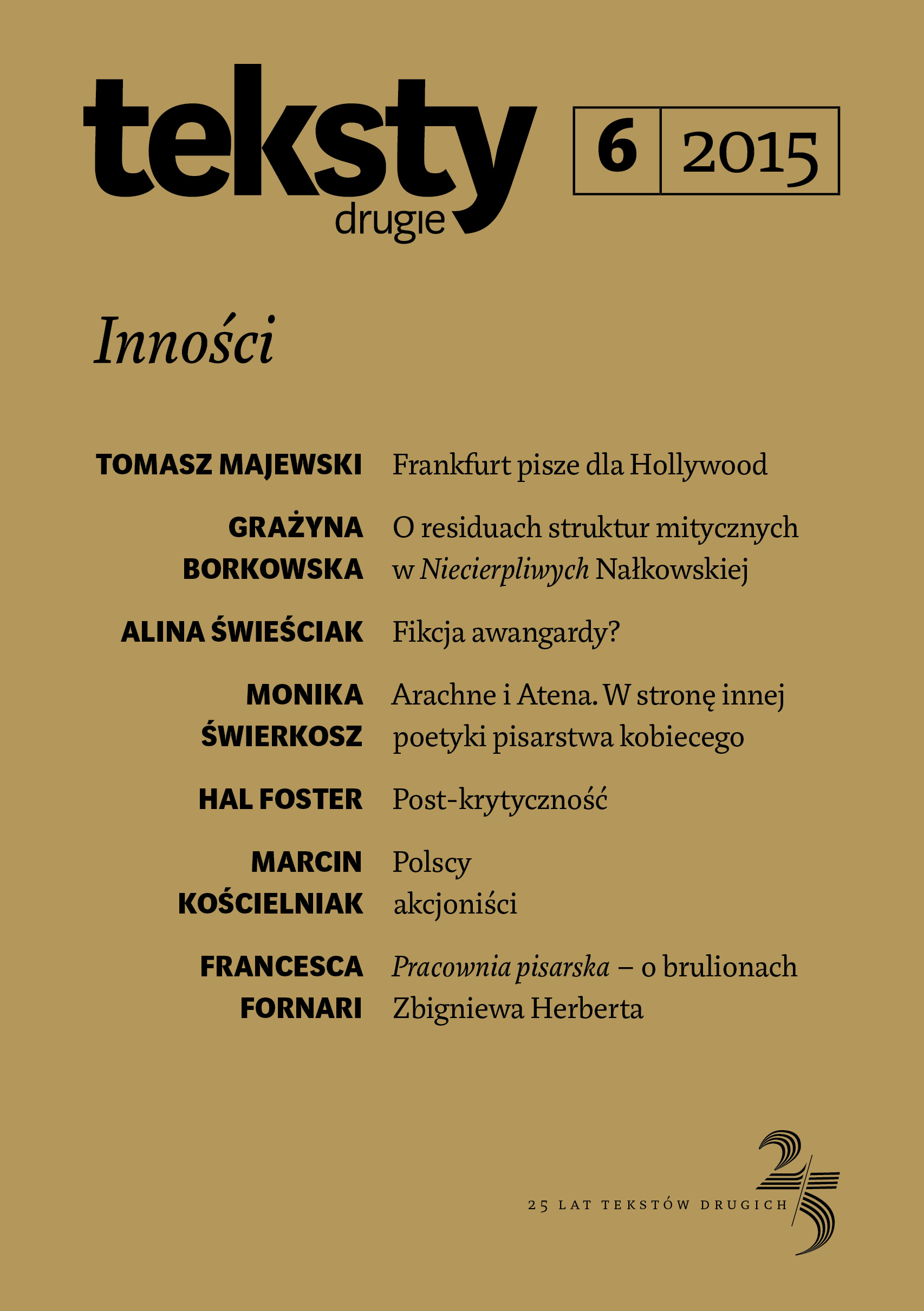
Zbłąkany Eros? Freud i mesjański witalizm
Review: Agata Bielik-Robson Erros: Mesjański witalizm i filozofia [Erros: Messianic Vitalism and Philosophy], Universitas, Cracow 2012
More...We kindly inform you that, as long as the subject affiliation of our 300.000+ articles is in progress, you might get unsufficient or no results on your third level or second level search. In this case, please broaden your search criteria.

Review: Agata Bielik-Robson Erros: Mesjański witalizm i filozofia [Erros: Messianic Vitalism and Philosophy], Universitas, Cracow 2012
More...
This article polemicizes with Arkadiusz Żychliński’s book Laboratoria antropofikcji: Dociekania filologiczne [Laboratories of Anthropofiction: Philological Investigations], but Musiał also departs from Żychliński’s key concepts. First, he reconstructs the book’s main points, especially Żychliński’s claim that a person’s natural way of interacting with themselves, others and the world is so-called fabulation (i.e. creating a story), which is why homo sapiens as a species was able to surpass the role of being an object in the evolutionary experiment and instead became a conscious subject in it. Żychliński also makes an innovative contribution to traditional philology in that he brings it into conversation with analytical philosophy and the philosophy of language (Donald Davidson), philosophy of mind (Daniel C. Dennett), developmental and evolutionary psychology (Michael Tomasello), and ethology. In the second part of the article Musiał polemicizes with Żychliński’s main points, pointing out – with reference to contemporary cognitivistic theory and the theory of the ‘embodied mind’ – the non-communicative nature of his concept of philology (in broader terms: the notion of fiction).
More...
Reading always represents an individual’s going out toward meaning, though that meaning is not always recognizable. Regiewicz starts from the New Testament scene of Mary Magdalene’s encounter with the resurrected Christ in the garden to describe the interpretational situation through a kerygmatic lens. Adopting a comparative perspective, he makes the traditional Biblical exegesis overlap with elements of somatic criticism, revealing significant points of ‘contact’ as key moments of existential experience, also in relation to the text’s reading. Touching meaning, like Christ’s body after the resurrection, belongs to the order of faith, that is to say a certain openness to ‘grace’; it also challenges us to be keenly engaged in our reading.
More...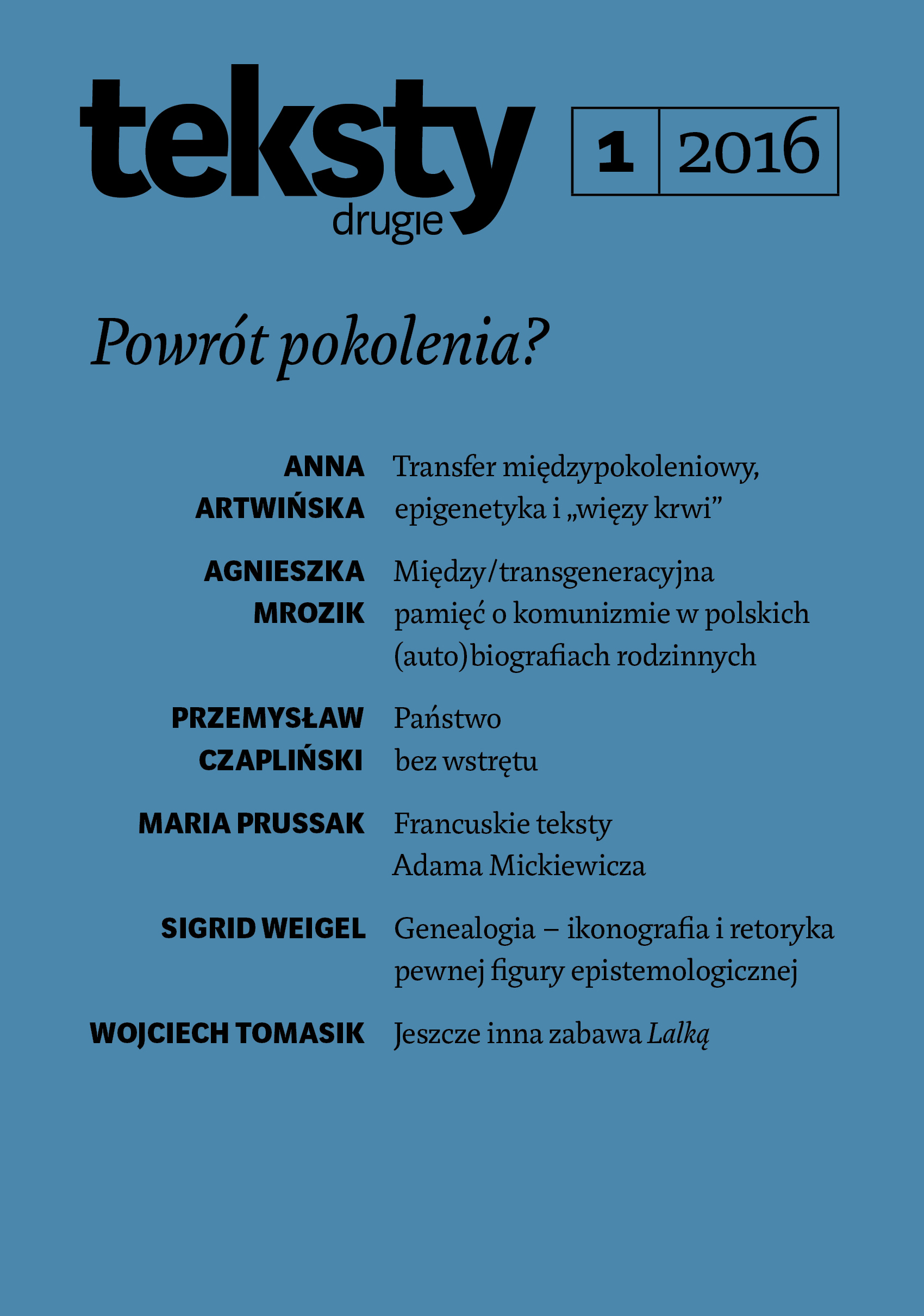
This article deals with the problem of truth in Jacek Hugo-Bader’s Reportage ‘Bomżycha’ [Bomzhykha is the female form of bomzh, a homeless person; bomzh is an acronym for bez opredelyonnogo mesta zhitelstva – ‘with no fixed place of abode’] in relation to the category of disgust. The notion of truth is key to the study of factographical texts (creative non-fiction), but it is rarely examined through categories outside the definition of correspondence. Meanwhile, the notion of disgust, understood as an anthropological category, easily inscribes itself into the character of factographical texts on themes that are placed under a social taboo. Hugo-Bader’s work belongs to this model, as it engages in the inner struggle between the drive to reject something disgusting and the drive to get to know and affirm it – a struggle that allows to touch the essence of the phenomenon described. This procedure aims to minimize the distance between the perceiving subject and the foreign surrounding, and to reduce the level of mediation in the reportage text.
More...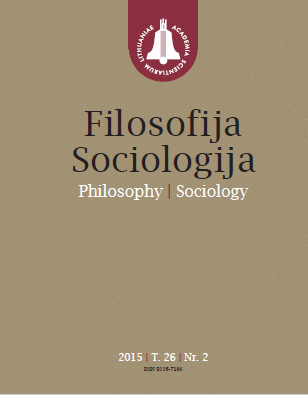
The article presents results of a study aimed at exploring social concepts associated with bodily ‘normativity’ and ‘passability’: the notion of normative body weight and attitude towards over- and underweight individuals. We were particularly interested in the common concepts and notions associated with normative body weight as well as possible reasons for rejection of people whose bodies do not fall within the socially shared knowledge of what the ‘right’ body is. The article presents results of a qualitative, interview-based research study conducted with the use of visual materials.
More...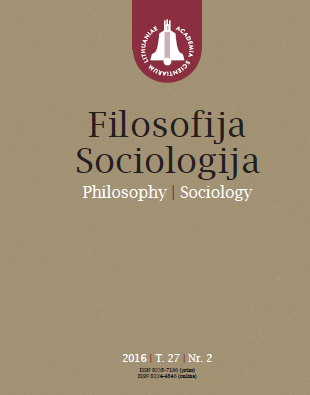
Presented in this article are the shifts of stereotypical notions on the characteristics of various nations (Lithuanians, Germans, Russians, etc.) in the past decade. The stereotypes formed in the consciousness of Lithuanian students on Lithuanians and foreigners were studied in 2003, 2008 and 2015. A change in national stereotypisation was to be expected during this period due to the changes in political climate and international relations. Results of this study confirm this: the negative stereotype index of Russians has noticeably increased, while the positive index has decreased; stereotypes about the Jewish, having taken into account shifts in positive and negative stereotypes, have been consistently improving during the past decade; etc. The study has also revealed the changes in Lithuanian auto stereotypes: the self-image of the nation has not improved and the signs of lower social activity have become more pronounced.
More...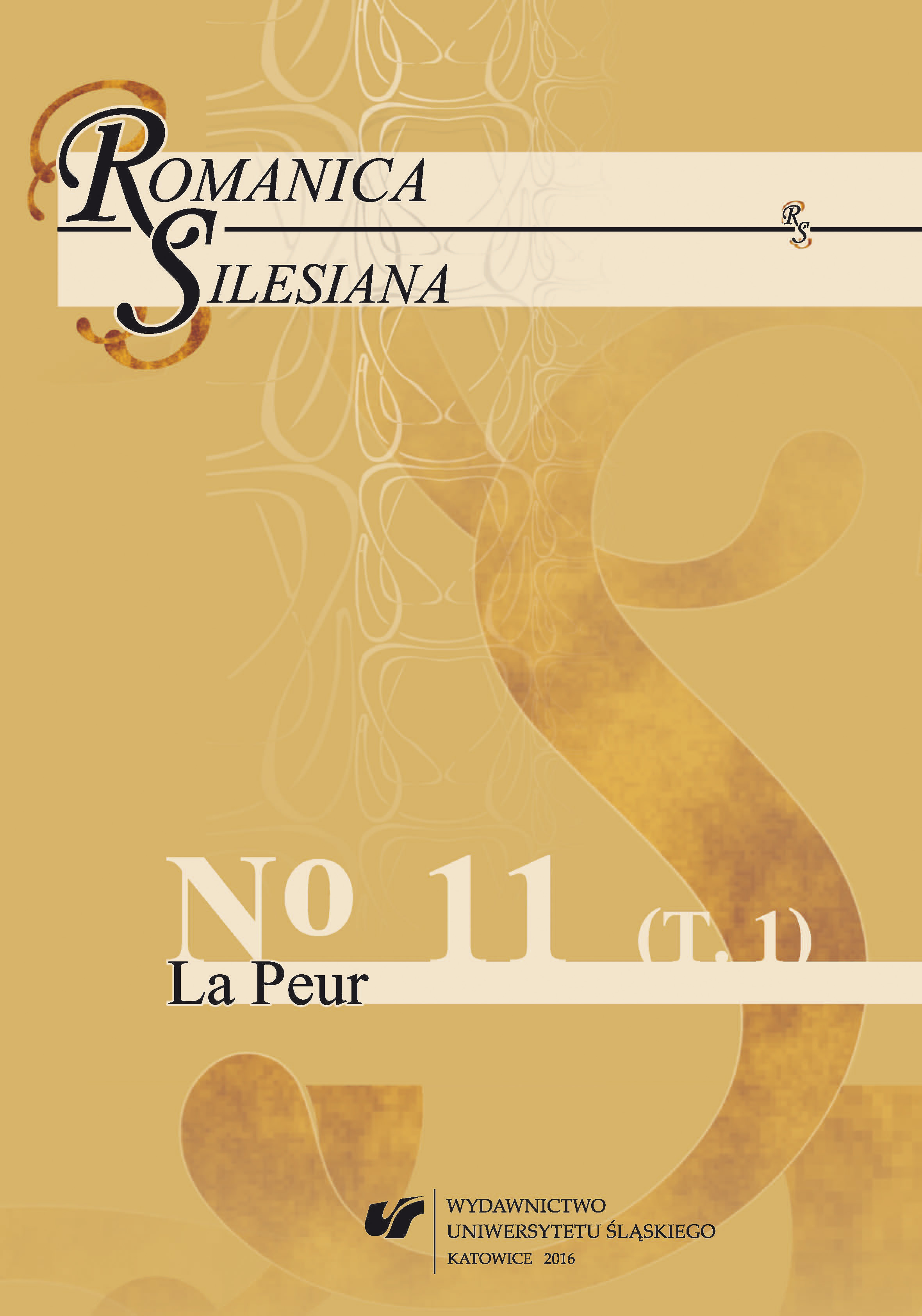
Enlighted elites were imperatively struggling against fear, perceived as the source of tensions and social conflicts. This struggle incited a number of very different initiatives, such as the articles from “Encyclopédie” [“Encyclopaedia”] by Diderot / d’Alembert or from “Dictionnaire philosophique” [“Philosophical Dictionary”] by Voltaire, philosophical tales by the latter and, finally, the philosophical novel by Jan Potocki, in its two versions from 1804 and 1810, recently discovered by François Rosset and Dominique Triaire. The fear of supernatural and, especially, of death is being tamed thanks to well‑known literary proceedings (irony or the comic), which may be described using the theory of games by Roger Caillois or by Colas Duflo. Hereafter, we are putting forward the ambivalence appearing in the first case and particularly noticeable in Potocki’s writings.
More...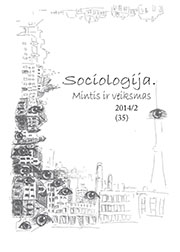
Review of: Arūnas Acus - " Legum omnes servi sumus, ut liberi esse possimus" by Cicero "Pro Cluentio" 2014 metais baigėsi Europos socialinio fondo finansuotas projektas „Kriminalinės justicijos recepcija visuomenėje“. Vienas šio projekto rezultatų yra monografija Kriminalinės justicijos supratimas visuomenėje (išleista Vilniaus universiteto leidyklos lietuvių ir anglų kalbomis), kurios analizuojamų problemų ratas atliepia šiuolaikinės Lietuvos visuomenės kriminalinės justicijos vertinimo poreikį. Knyga yra aktuali ne tik mokslininkams, bet ir Lietuvos visuomenei.
More...
Review of: Vaidutis Laurėnas- Lietuva kaip problema: filosofiniai istoriniai politikos tyrinėjimai. (Vilnius: Tyto alba, 2014 m.), Alvydas Jokubaitis , Raimundas Lopata. Knygą sudaro vienuolika straipsnių, taip pat pratarmė, įvadas ir pabaigos žodis. Bet recenzijai pasirinkau labiau apibendrintą – trinarę – šioje knygoje nagrinėjamos problematikos struktūrą. Tai: 1) politikos mokslo ir sociologijos kritika („alternatyvos politikos sociologijai ieškojimas“), ir istorijos mokslo bei filosofijos išskirtinių pažintinių galimybių tiriant dabarties politiką teigimas; 2) Lietuvos tautinės valstybės kilmės ir raidos filosofinė istorinė projekcija į dabartį; 3) Lietuvos Respublikos prezidentų, A. Brazausko ir V. Adamkaus, ir Aukščiausios Tarybos (Atkuriamojo Seimo) Pirmininko V. Landsbergio istorijos sampratų įasmenintas politinis veiksmingumas.
More...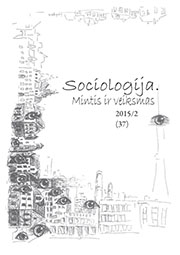
The article in the framework of teaching research describes the didactic dimension of the project of the sociology of scientific knowledge. Based on sociological investigation of the academic field, it attempts to conceptualize the formation of the habitus of the sociological research. The identification of the sociological habitus is treated as epistemological break, which is followed by epistemological vigilance. The analysis of the chemist academic community reveals not only the unique but also invariant aspects academic field that also shape the field of sociology. The recognition of the specific and isomorphic structure of academic field is considered as entrenchment of the sociological habitus.
More...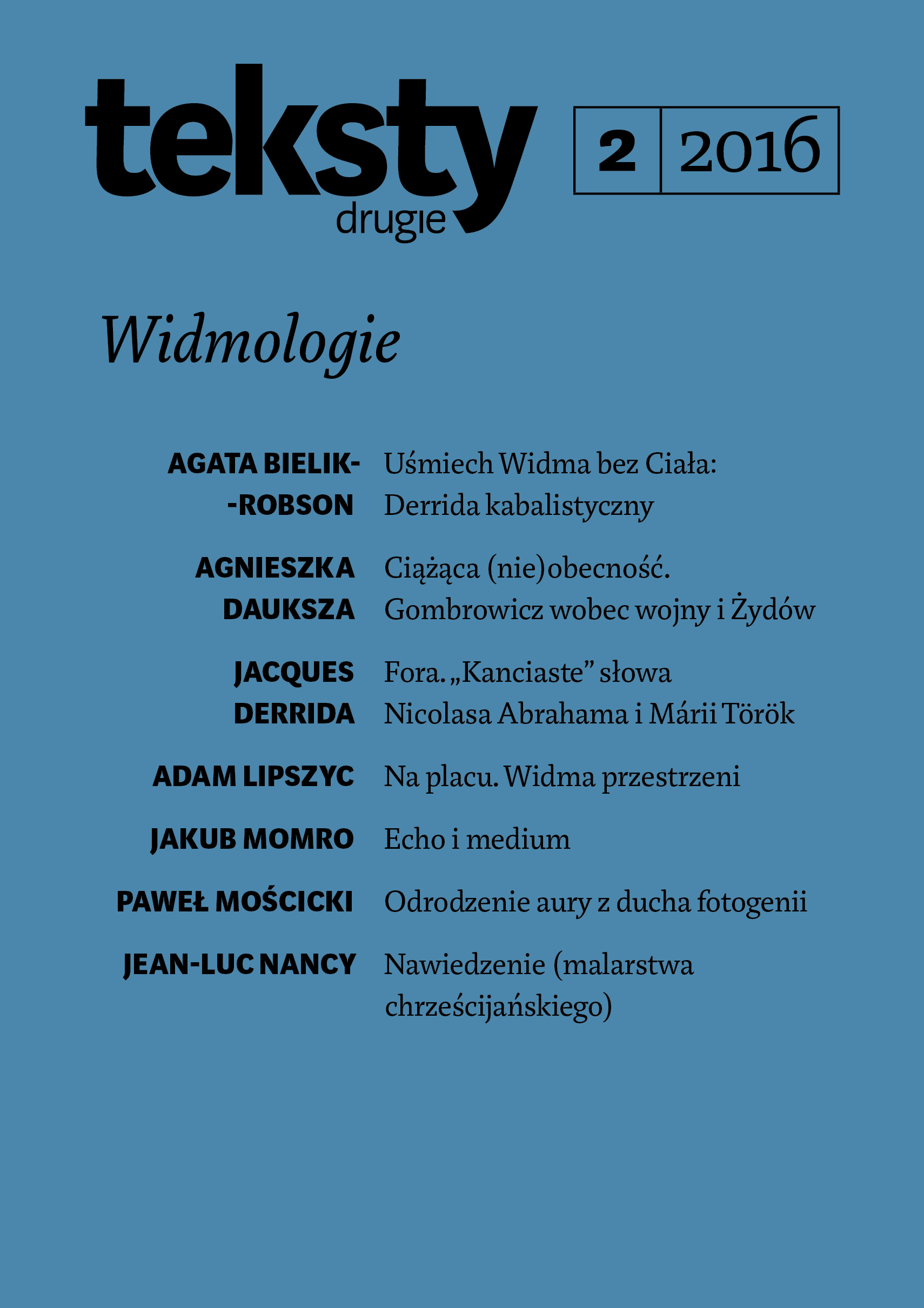
Examining deconstructionist readings of Plato’s philosophy of space, Lipszyc reveals the close relationship between spatiality and spectrality. Space, properly understood, turns out to be a subversive dimension that provides room for phenomena even as it transforms them into apparitions. This statement becomes particularly significant in relation to urban space, which Lipszyc analyses with reference to geography theorists such as Edward Soja and Steve Pile, as well as with reference to the psychoanalytical perspective. This analysis is then complicated in the confrontation with a particular point on the map of Warsaw, namely Plac Grzybowski, a point where spectres are dense, as described in the prose of Miron Białoszewski.
More...
This article discusses nineteenth-century spiritism and its role in forming ideas about women, their bodies, social functions and place in culture. Czeczot begins by demonstrating that to a certain extent, representations of mediumistic women perpetuated the iconographic tradition that had begun with images of magnetic séances, which, by highlighting the power of the magnetizer, helped strengthen notions of women’s bodies as a passive matter. In the context of these conventional beliefs, women stand out who claim to be in communication with the spirits and who, beginning in the 1850s, appear publicly to deliver speeches in a trance. Czeczot explores their significance for the women’s emancipation movement that was emerging at the time, and positions them as a point of departure to problematize the concept of one’s own voice.
More...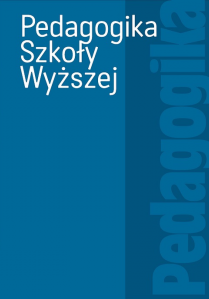
Socratic method seems very interesting and attractive conception of the inquiry to knowledge. Teacher applying this method promote independence and self-reliance in the classroom, while his role is reduced to facilitate the learning process only. Besides, Socrates’s method is based on definitely an analytical approach to knowledge. In article I suggest that Socratic method, because of these characteristics, can be identified with constructivist approach to learning. At the same time I advance the thesis that mentioned method, as a historical and philosophical category, should not be confused with constructivism.
More...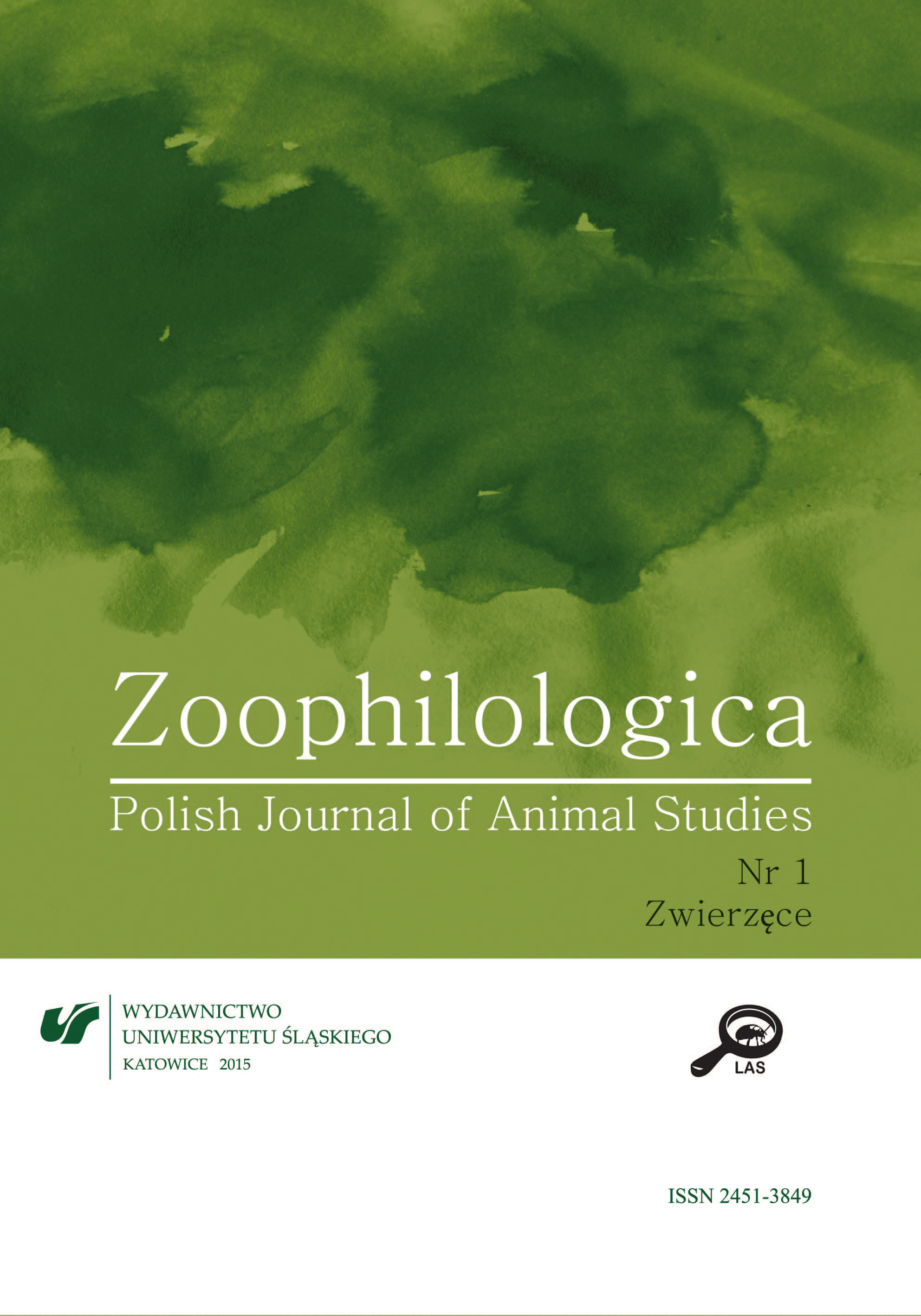
The following article has been based on four monographs as well as two anthologies of texts written after 2007. According to the author, Timothy Morton constitutes a model example of a theorist and a stylist working in the recently established field of material ecocriticism. The essay begins with a short diagram which illustrates various influences on the discipline, from philosophers to literary critics. Bruno Latour, as a theorist who continuously emphasizes the self-agency of non-human subjects (animals, objects), dominates the vertical dimension of the diagram. The horizontal dimension of the diagram, on the other hand, introduces categories which oscillate between animal studies and object-oriented ontology. Morton, in turn, devoted considerable attention to the task of defining the relations between man and animal; however, his latest monographs and essay situate him within the sphere of the object school. The author, then, formulates three questions regarding the role of narration, figurative language and scientific fact in ecocriticism. In turn, those questions, resulting from the study of Morton’s texts, remain pivotal for animal studies as well.
More...
In the article it is argued that the conviction that verbally expressed language (as commonly employed by humans) is necessary for thinking is not justified. Animals have been found to employ various communication systems (languages) and, though these are different from human language, they testify to consciousness and thought. Recent research among autistic people has indicated that they frequently think in images rather than words, and it is suggested that this was the original feature of human thinking and may also be the basis of animal thinking.
More...
Considerations about the human condition and humankind’s place in nature are a vital part of the works of Czesław Miłosz. Miłosz’s cosmological vision is based on a deeply dualistic structure. On the one hand, we have got the human and civilisation – which is a synonym of purposefulness and divine order; on the other hand, there is the wild, cruel and untameable nature, whose activity is full of chaos and is meaningless from the metaphysical point of view. There is a sort of inconsistency in this seemingly ordered structure of reality, which seems to constitute the principle of Miłosz’s anthropology. The human in his essence is a “paradoxical being”; it is difficult to classify him in an unambiguous way. He is considered as the only creature that is composed of God’s elements – immortal soul, consciousness, and intellect. These properties detach him from nature and bring him closer to God in the hierarchy. Still, he is a biological creature and that disgraceful fact is difficult to accept for Miłosz; therefore, an attempt to draw a clear line between man and nature is reflected so clearly in Miłosz’s works. The purpose of the article is to analyse a few works of Czesław Miłosz with regard to the issues mentioned above. Undeniably, the ideas presented by Miłosz are deeply rooted in Western philosophy.
More...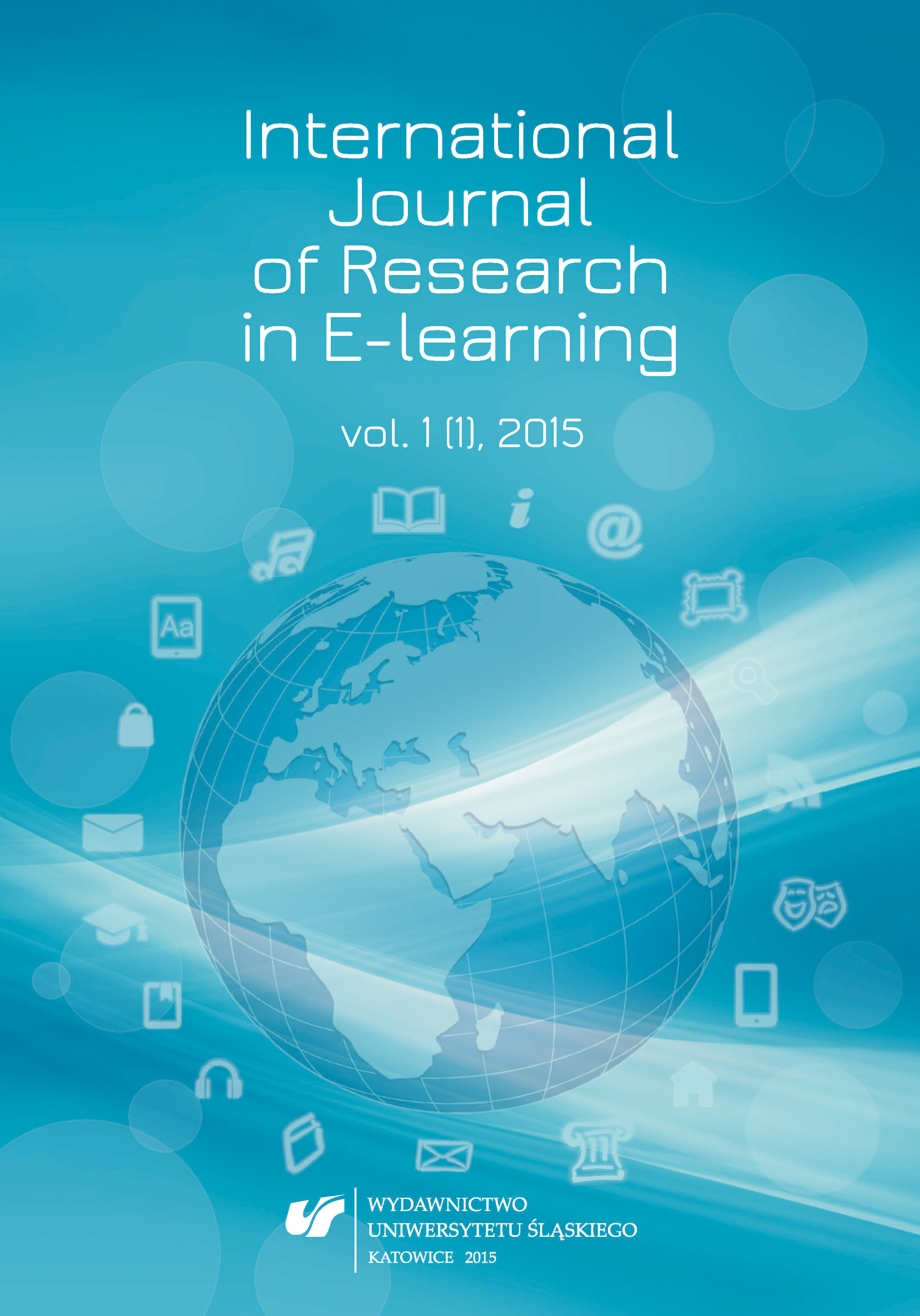
This article, prepared by an international team of researchers from different scientific areas, connected with ICT, e-learning, pedagogy, and other related disciplines, focuses on the objectives and some results of the international project IRNet. In particular, the article describes research tools, methods, and a procedure of the WP2, that is, analyses of legal, ethical, human, technical, and social factors of ICT and e-learning development, and the state of intercultural competences in partner countries: objectives, tasks, deliverables, and implementation of research trips. Researchers from Poland, the Netherlands, Spain, Slovakia, Portugal, Czech Republic, Australia, Ukraine, and Russia analyzed the results of WP2 in the context of the next stages and Work packages of IRNet project – International Research Network.
More...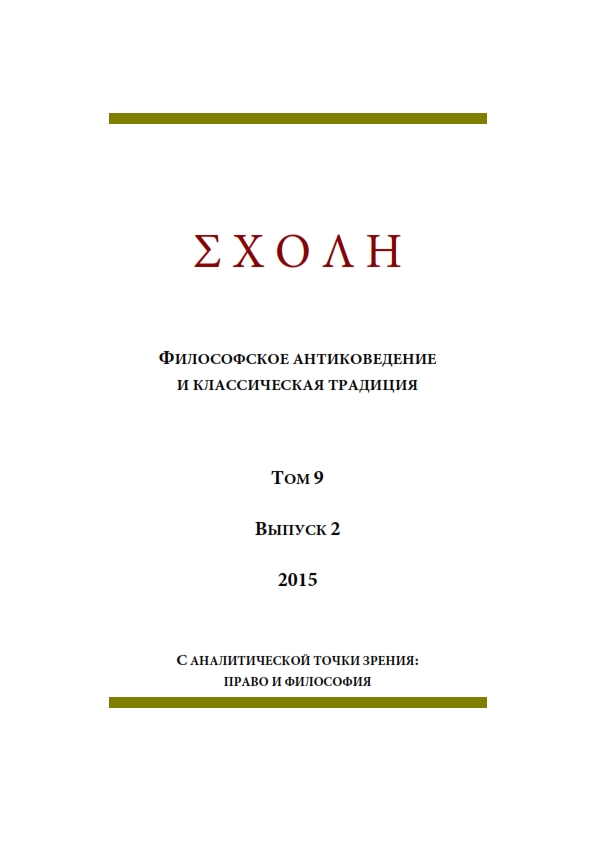
In this article I analyze Heidegger’s interpretation of the Greek word «aletheia» (truth) from a logical point of view. Heidegger asserts that Greek philosophers considered «aletheia» to be «Die Unverborgenheit» (un-concealed). How the Liar Paradox will look like if we use Heidegger’s «Die Unverborgenheit» instead of «truth» in the logical reasoning? I assert that if Heidegger’s concept of truth is utilized a clear logical formulation of the Liar Paradox will be impossible. This fact casts doubt on Heidegger’s interpretation of the Greek idea of «aletheia», because the Liar Paradox is one of the oldest paradoxes formulated in Greek philosophy.
More...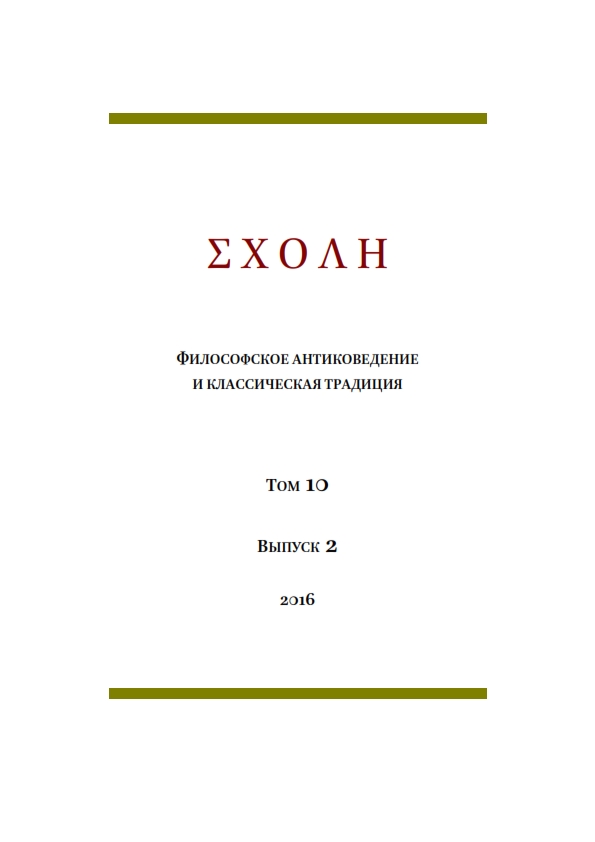
As previously (ΣΧΟΛΗ 9.2 [2015] 241–252) the article deals with the Stoic category to lekton and G. Frege’s category of Sinn. I explicate some formal features of these categories, which demonstrate the similarity of the Stoic and the Fregean logical theories. In particular, I demonstrate that the concept of “complete lekton” (axiōma) in the Stoic doctrine has the same structure as the concept of thought (Gedanke) in Frege’s semantic theory. However, the formal structural similarity between to lekton and Sinn does not presupposes the ontological similarities in these theories.
More...
In a short note, the author outlines a series of Hans Kelsen’s studies dedicated to Ancient political thought, esp. his The Philosophy of Aristotle and Hellenic-Macedonian Policy. He believes that these relatively neglected minor studies of the famous philosopher of law could still be of interest to contemporary classicists and historians of philosophy.
More...